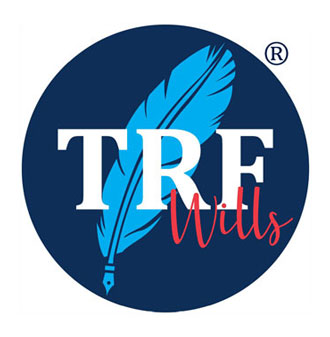
Inheritance Tax (IHT) is payable on death or at certain stages during lifetime. For the purposes of this post, we will only look at the Inheritance Tax Allowances charge payable upon a death. Upon death, our Representatives will calculate the value of our estate, including the value of our assets i.e., property, money in bank accounts, etc., They are also required to account for the value of any gifts we have made within 7 years before our death.
If the value of our estate exceeds the available IHT free allowances, then the rate of IHT payable is 40% upon the value of our estate which is above those available tax-free allowances.
Inheritance Tax Allowances
Nil Rate Band Allowance
We all have a basic IHT allowance available to us known as a Nil Rate Band (NRB) allowance. The current value of this NRB is £325,000, so if our estate value exceeds this amount, then IHT will become payable upon that excess amount at a rate of 40%, unless other allowances are also available to us. However, if the value of assets within our estate is below the NRB, then no IHT will be payable. It is important to be aware that the NRB available can be reduced by any gifts and transfers made by us during our lifetime, especially within 7 years prior to death.
Once we are deceased, if we have a previously deceased spouse/civil partner (i.e., we are widowed), then our estate may also claim any available NRB allowance which was unused by our previously deceased spouse/civil partner. Usually, if our deceased spouse/civil partner passed their entire estate value for the benefit us when they died, then their estate value is exempt from IHT so they have NOT used any of their IHT allowance. Therefore, this unused allowance can also be used by our representatives upon our subsequent death.
Residential Nil Rate Band Allowance
The additional Residential Nil Rate Band (RNRB) allowance will only be available if we leave a “qualifying residential property interest” to our direct lineal descendants after our death. For a property to be a qualifying residential property interest, it must form part of our estate at the date of our death, and must have been used by us as our main residence at some point during our period of ownership of that property. This allowance cannot be applied to a property that was bought as a buy-to-let investment for example.
“Direct lineal descendants” includes our children, grandchildren and so on down the line. It also includes spouses and civil partners of our descendants, as well as stepchildren, adopted children, foster children and children to whom we were the appointed guardian.
The current value of the RNRB is capped at £175,000, which means that if a residential property is worth £200,000, then only £175,000 of its value would be free from IHT.
As with the NRB above, our previously deceased spouse/civil partner’s RNRB allowance can also be claimed by our representatives upon our subsequent death.
Steps to mitigate IHT
Gifts to Spouse or Civil Partner
Any gifts made to our spouse or civil partner are free from IHT due to the spousal exemption. This applies in lifetime and in death.
Example:
Paul and Linda are married. In Paul’s Will, he gifts his entire estate to Linda upon his death. As we know, Paul and Linda each have a NRB and RNRB. As Paul has gifted all to Linda, his NRB and RNRB allowances are unused. However, as they are married at the time of his death, this means that when Linda dies, her Representatives can apply for any of Paul’s unused allowances to be transferred to Linda’s estate. The current allowances give Linda a total IHT free allowance of £1,000,000.
Please note any unused NRB and RNRB are NOT transferable between unmarried couples
Small Gifts Exemption
We can make IHT-free gifts of up to £250 per person during the tax year providing that we have not already used another exemption.
Annual Exemption
As well as the above, we can give away £3,000 each tax year without this being added to the value of our taxable (IHT) estate.
If the full £3,000 Annual Exemption allowance is not used, then it can be rolled over to the following year so that the annual exemption for the following year will be £3,000 PLUS the unused allowance from the previous year (maximum £6,000). It is important to note that any unused annual exemption can only be carried forward for one year.
Wedding or Civil Ceremony Gifts
For gifts under this category to be free from IHT, the gift must be made either before or upon the marriage/civil partnership. It cannot be made after the wedding. The gift must also be made on condition that the marriage or civil partnership actually occurs.
- A parent can gift up to £5,000 to their own child free of IHT.
- A grandparent can gift up to £2,500 to a grandchild or great-grandchild free of IHT.
- For any other relationship, a person can gift up to £1,000 free of IHT.
Assistance for Living Costs
We can make payments to assist with a relative’s living costs such as an elderly relative, or a child under the age of 18 who is in full time education. These payments are free from IHT.
Gifts to a Qualifying Charity
Gifts made to qualifying charities are exempt from IHT.
Also, the rate of IHT on an entire taxable estate value can be reduced from 40% to 36% on condition that 10% or more of our net estate value is left to qualifying charitable causes.
Gifts to Political Parties
Gifts made to qualifying political parties are free from IHT provided that the political party at the last general election had either at least two MP’s that were elected to the House of Commons OR one MP was elected to the House of Commons and the members of the party received at least 150,000 votes.
Gifts from Disposable Income
Any gifts made from our DISPOSABLE income rather than our capital are also exempt from IHT.
Please note that the above allowances are only relevant if they are made from an estate value which would otherwise be subject to IHT.
For further information WITHOUT fear of consultation fees or obligation, please visit our Inheritance Tax page.


 TRF Wills (TRF) was created by Michael Cotterill in 2005. He is a member of the Society of Will Writers and registered with the Information Commissioner’s Office.
TRF Wills (TRF) was created by Michael Cotterill in 2005. He is a member of the Society of Will Writers and registered with the Information Commissioner’s Office.